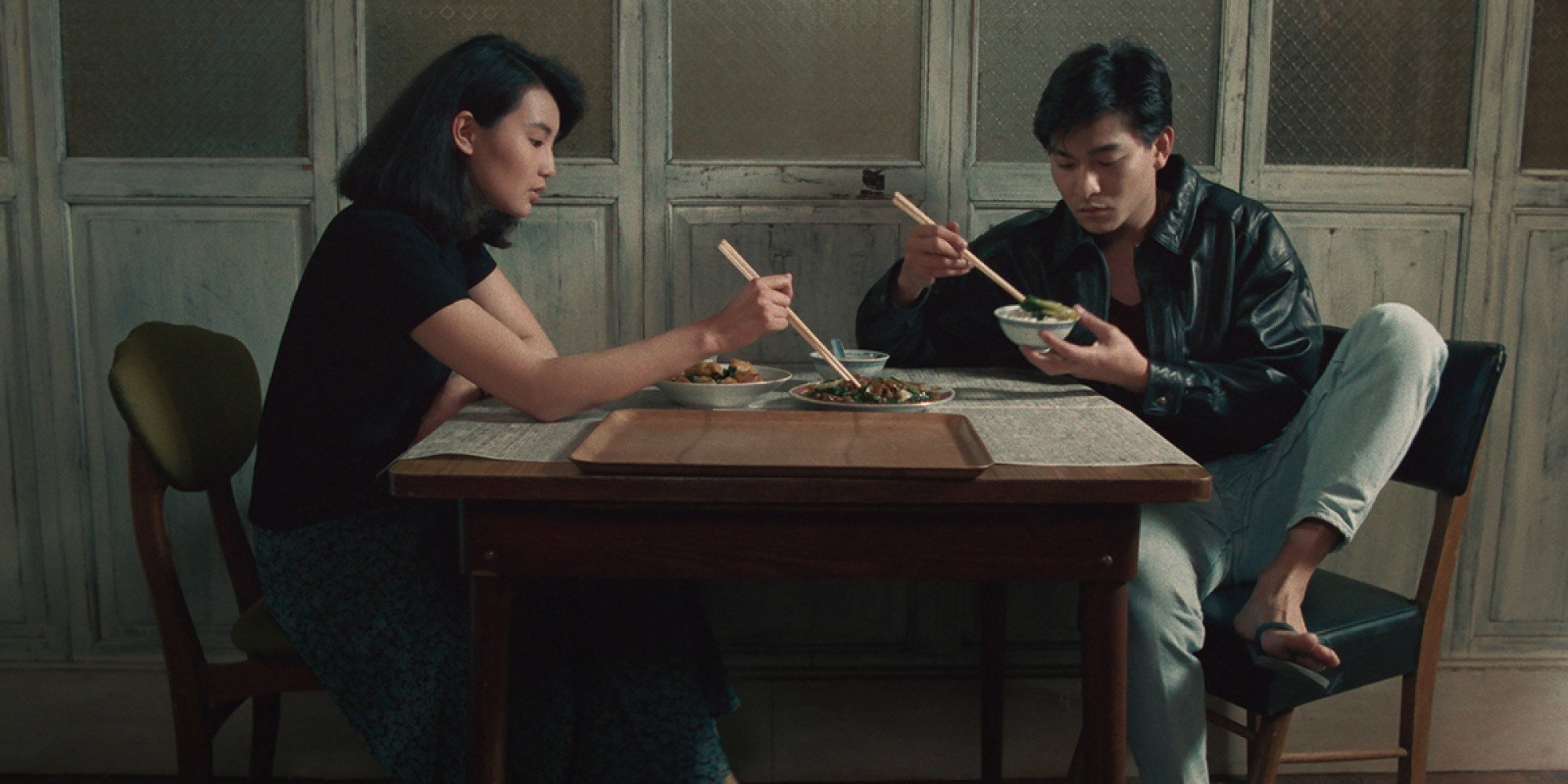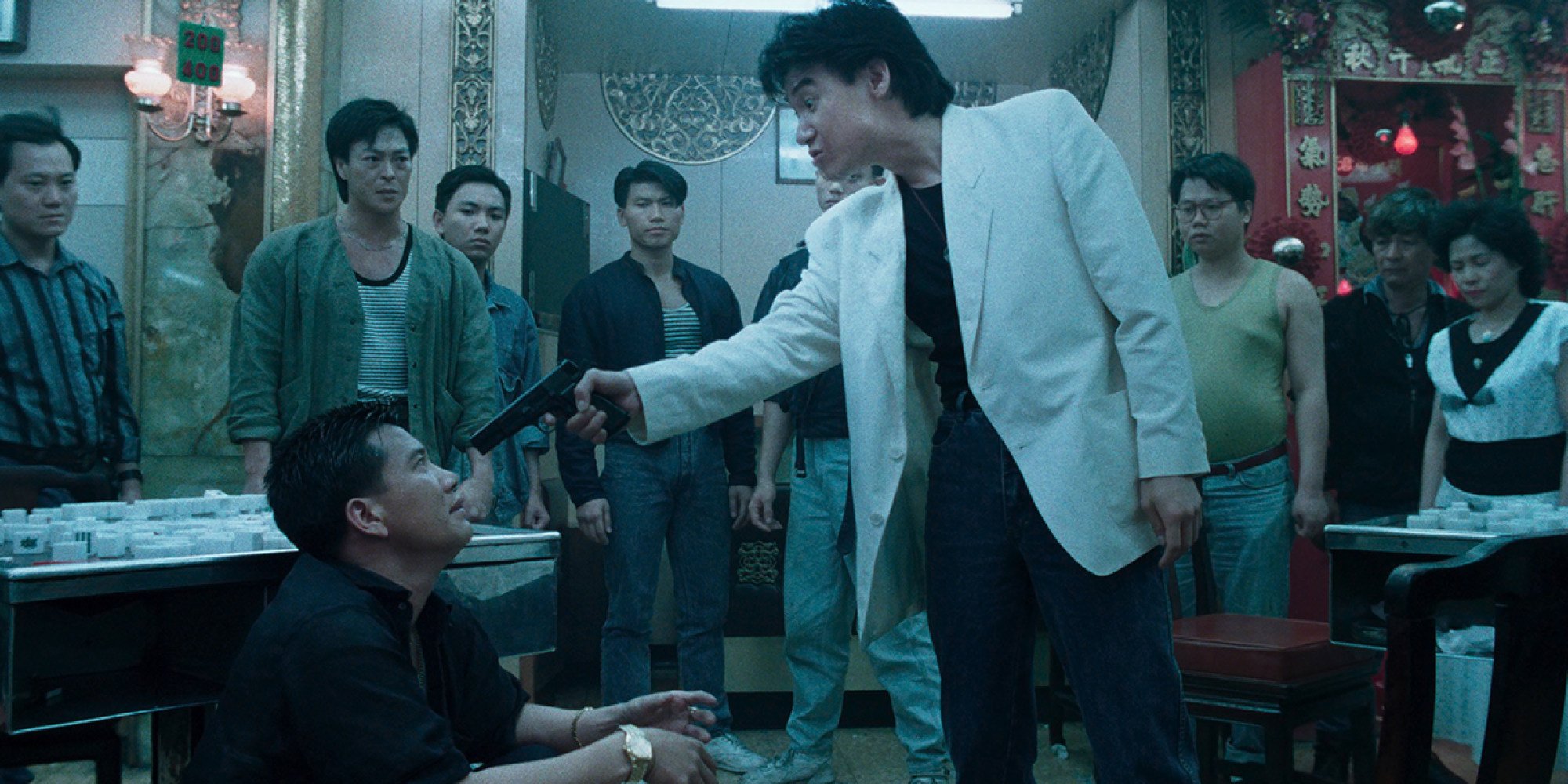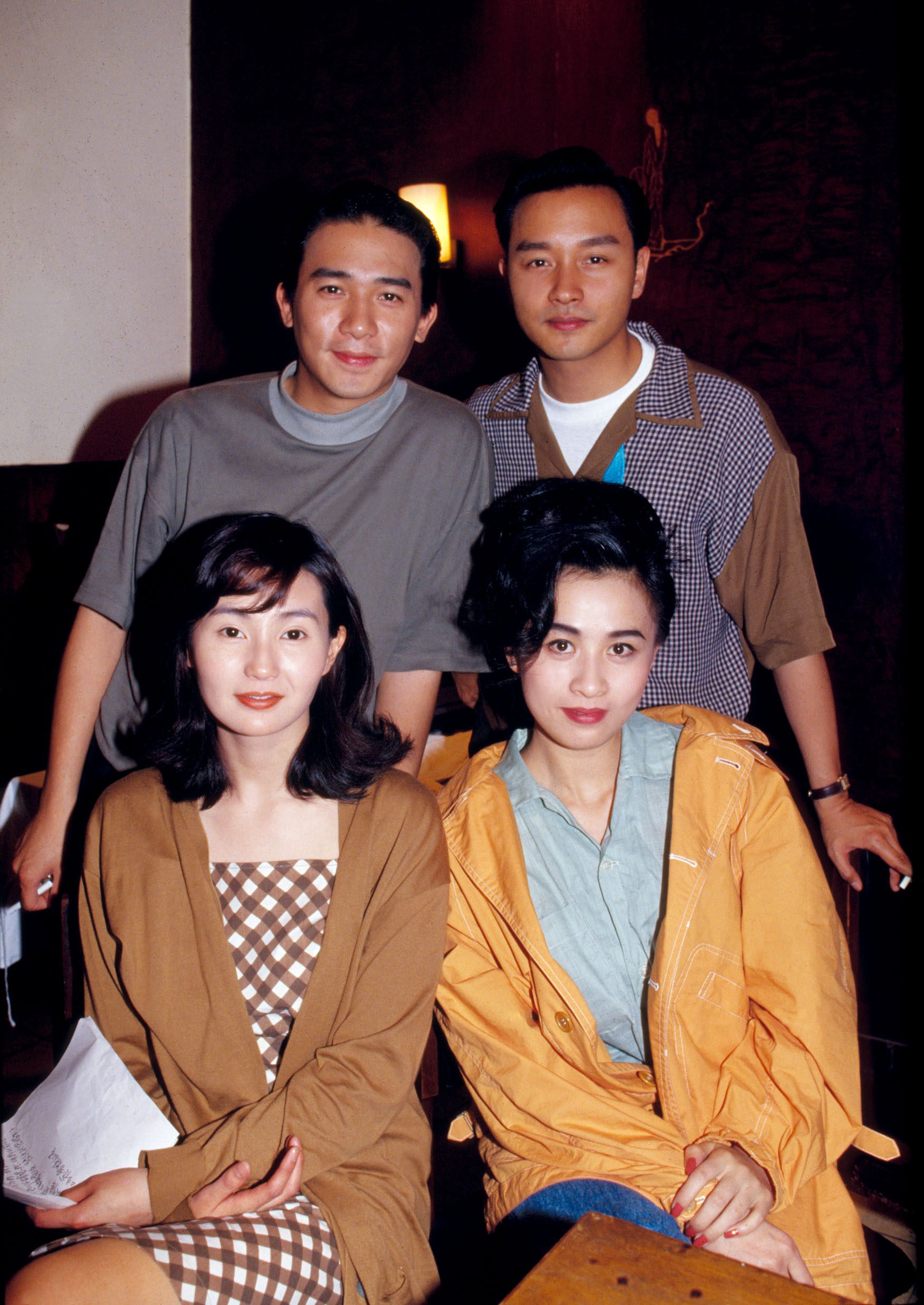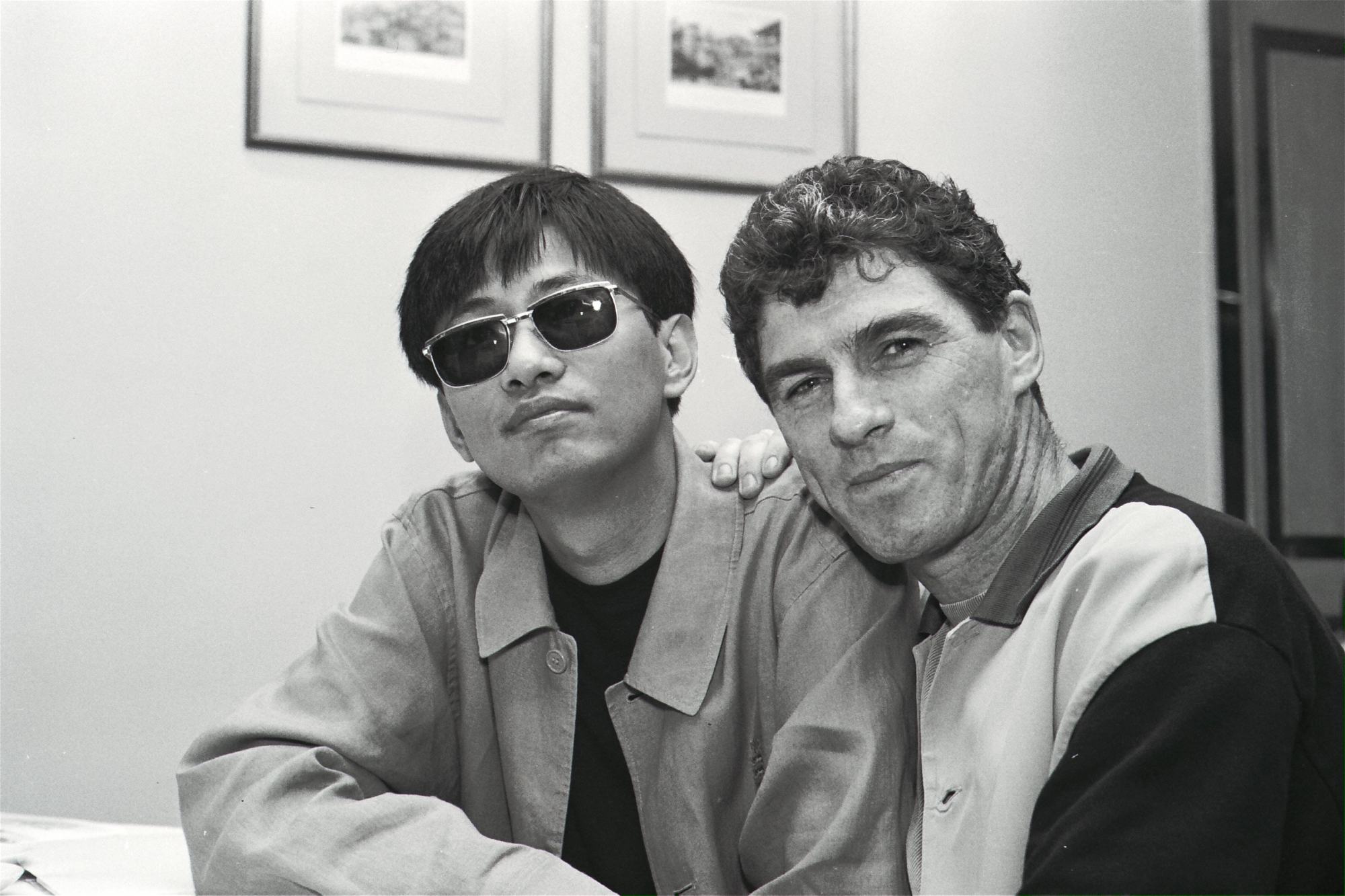
‘Even then, he was so serious’: Wong Kar-wai’s films As Tears Go By and Days of Being Wild – what Leslie Cheung, Andy Lau, Jacky Cheung, and Wong himself said
- We recall what Wong and his cast, from Andy Lau Tak-wah to Leslie Cheung Kwok-wing, had to say about his first two films, As Tears Go By and Days of Being Wild
- The director explains, among other things, why As Tears Go By’s Chinese title references a famous opera despite having nothing to do with that work
Post critics have not always praised Wong Kar-wai’s films, but they have generally accepted that he is a filmmaking genius, and Wong has been interviewed numerous times by the newspaper.
Below, we recall what Wong and his cast had to say about his first two films, As Tears Go By and Days of Being Wild.
As Tears Go By (1988)
Wong’s directorial debut is much more of a standard genre work than the films that followed, although it still has touches of his later style.
The brotherly bond that exists between two triads played by Andy Lau Tak-wah and Jacky Cheung Hok-yau is pure John Woo Yu-sum, but Wong said he got the idea for the story before Woo’s gangster classics were made.
As Tears Go By was meant to be part of a trilogy shot in conjunction with Patrick Tam Ka-ming, for whom he had written the triad drama Final Victory, Wong told the Post in 1989.
How Johnnie To’s Election films gave Hong Kong triads a more refined edge
“As Tears Go By was supposed to be the first part, Final Victory the second and Heroes of the Times, the last,” he said. “We figured out the idea of the series back in 1984, long before the genre of gangland heroism appeared. Slapstick comedies were still the order of the day then.
“We wanted to film the lives of lower-class, small-time hoods who become heroes for a day without thinking about what’s going to happen next,” Wong said.
The film’s Chinese name translates as Mong Kok Carmen, a reference to the gritty urban district in Kowloon and the famous opera by Georges Bizet, although the movie’s storyline has nothing to do with that work.
Wong said in an interview that he started out shooting a different film that did refer to the Bizet, but the story was changed soon after shooting started, as it was too close to another movie already in production.

The cast did not realise that a change had taken place, and told the press that the name of the film was still Mong Kok Carmen. So as not to confuse the audience, Wong kept the name, even though he was shooting a different film.
To Wong’s surprise, As Tears Go By was chosen to screen in Critics’ Week at the Cannes Film Festival, a rare honour for Hong Kong filmmakers back then.
“It’s a shock,” the director told the Post. “I didn’t know what Cannes was all about before. Most local directors don’t think of being nominated for Cannes while shooting their first film. It’s quite overwhelming.”
Wong’s unique approach to filmmaking did not just arise naturally, it was something that he thought about right from his debut.
“The audience are passive in a sense. They always want to see something new and refreshing on the screen,” he told the Post.

“Vision is what differentiates one director from the other, and that is a combination of upbringing, outlook, and training.”
Days of Being Wild (1990)
Wong made his name in Hong Kong with As Tears Go By, which received 10 Hong Kong Film Awards nominations, and took home two prizes. Critics and public alike were waiting to see how his sophomore work, Days of Being Wild, would turn out, and that increased the pressure on Wong and his cast.
The movie did not fare well with audiences, who were irritated by its unconventional structure – some viewers were reportedly annoyed enough to destroy their cinema seats – but it was a hit with critics, and later brought Wong to the attention of foreign reviewers.
Leslie Cheung Kwok-wing, who played the lead character, Yuddy, told the Post that he decided to work with Wong on the strength of seeing As Tears Go By, although he thought he was going to be starring in a typical romance.
“I think our cooperation is based on a relationship in which we both admire each other,” Cheung told the Post.
“When I first received the script, I liked it very much – because the story was about six youngsters growing up in the ’60s, and I thought it would be a romantic drama, and I was confident Wong could capture the mood and atmosphere of that era.”
Every Wong Kar-wai feature film ranked, in order of greatness
Andy Lau, who plays the second male lead, told the Post that he thought the audience might have to think deeply about the film, as it was so different to a typical Hong Kong drama.
“You can say that Wong is a person who lives and would die for his art, he makes his scripts come alive and is not interested in selling out for commercial reasons,” Lau said.
In a review published the same day, the Post seemed to concur with Lau’s feelings that the film would confuse audiences, although it did praise many of the scenes in isolation.

“It feels like three hours’ worth of leisurely-paced character-sketches trimmed down to an hour and a half, with the result that too much is omitted,” the Post’s reviewer said.
“Towards the end, the structure further breaks down when the location shifts from Hong Kong to the Philippines. It is as if Wong suddenly realised that time was running out and he had to get on with the story. The outcome is emotionally confusing. Days of Being Wild is like a long preamble which never really leads to anything.”
Unlike our critic, Jacky Cheung, who had a minor role, said he knew what to expect from Wong’s idiosyncratic approach to shooting – although he was still surprised by the result.

He said: “I knew Wong from As Tears Go By. Even then, he was so serious he would reshoot scenes until he felt they were good enough. But this time, when we worked on Days of Being Wild, I noticed that he became still more demanding – both of the actors and himself.
“He wanted everything to be just right, from the lighting to the settings, from our actions to our facial expressions. But as an actor, I understood that. Everything had to be perfect.”
Carina Lau Ka-ling, whose excellent performance as a woman obsessed with Yuddy was noted at the time, said that working with Wong was an interesting experience.
Fallen Angels: Wong Kar-wai on the film that was almost Chungking Express
“Wong talked to us throughout filming and he knew how to bring out our different characteristics for the roles,” the actress said.
“At first, I was not familiar with Wong, and I had little communication with him – mainly because he is quite a shy person. Later, I found out that he is such a good storyteller that he can teach you how to play a role just through conversation.”
Most interviews and reviews from the time mention that a sequel to Days of Being Wild, in which all the loose strands would be resolved, was planned for 1991. The final scene, which features a new character played by Tony Leung Chiu-wai, points to a continuation.

But the sequel never materialised because the film failed to live up to box-office expectations.
In this regular feature series on the best of Hong Kong cinema, we examine the legacy of classic films, re-evaluate the careers of its greatest stars, and revisit some of the lesser-known aspects of the beloved industry.
